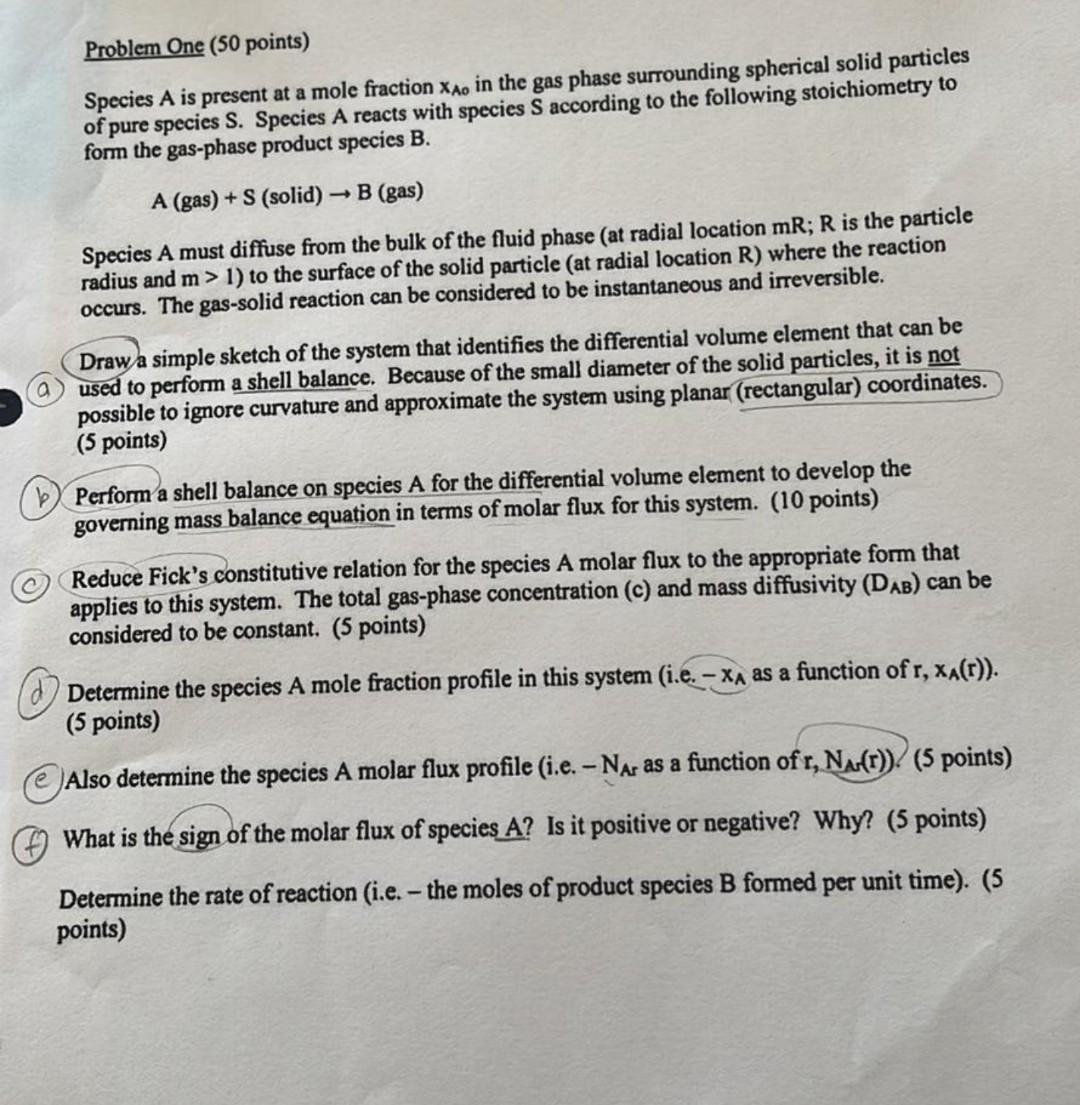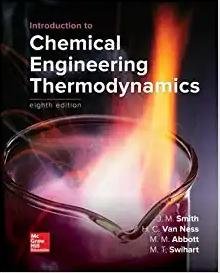Answered step by step
Verified Expert Solution
Question
1 Approved Answer
please I need the detailed solution of this transport phenomenon question Problem One ( 50 points) Species A is present at a mole fraction XAO0

please I need the detailed solution of this transport phenomenon question
Problem One ( 50 points) Species A is present at a mole fraction XAO0 in the gas phase surrounding spherical solid particles of pure species S. Species A reacts with species S according to the following stoichiometry to form the gas-phase product species B. A(gas)+S(solid)B(gas) Species A must diffuse from the bulk of the fluid phase (at radial location mR;R is the particle radius and m>1 ) to the surface of the solid particle (at radial location R ) where the reaction occurs. The gas-solid reaction can be considered to be instantaneous and irreversible. Draw a simple sketch of the system that identifies the differential volume element that can be (a) used to perform a shell balance. Because of the small diameter of the solid particles, it is not possible to ignore curvature and approximate the system using planar (rectangular) coordinates. (5 points) b) Perform a shell balance on species A for the differential volume element to develop the governing mass balance equation in terms of molar flux for this system. (10 points) Reduce Fick's constitutive relation for the species A molar flux to the appropriate form that applies to this system. The total gas-phase concentration (c) and mass diffusivity (DAB) can be considered to be constant. ( 5 points) d) Determine the species A mole fraction profile in this system (i.e. xA as a function of r,xA(r) ). (5 points) (e) Also determine the species A molar flux profile (i.e. NAr as a function of r,NAr(r) ). (5 points) 7) What is the sign of the molar flux of species A? Is it positive or negative? Why? (5 points) Determine the rate of reaction (i.e. - the moles of product species B formed per unit time). (5 points)Step by Step Solution
There are 3 Steps involved in it
Step: 1

Get Instant Access to Expert-Tailored Solutions
See step-by-step solutions with expert insights and AI powered tools for academic success
Step: 2

Step: 3

Ace Your Homework with AI
Get the answers you need in no time with our AI-driven, step-by-step assistance
Get Started


